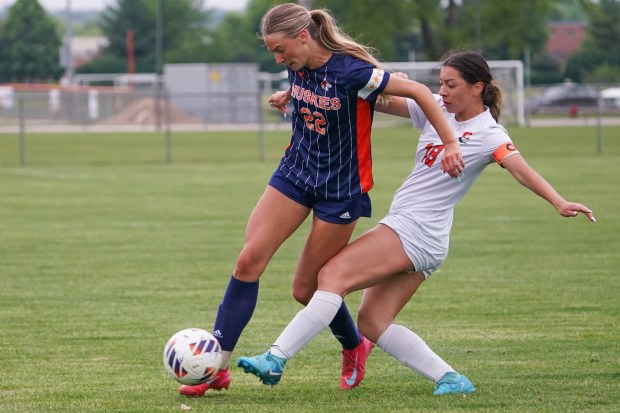Illinois lawmakers are considering two bills aimed at blocking children and teenagers from obtaining and concealing electronic cigarettes.
One bill would ban e-cigarettes that are designed to look like objects commonly carried by schoolchildren, such as highlighters and markers, and therefore not spotted for what they actually are by adults.
“We should do everything in our power to make it impossible for children to obtain and conceal tobacco products,” state Sen. Julie Morrison, a Deerfield Democrat who is co-sponsoring the bill that would ban the marketing of vapes that might be mistaken by adults for something else, said at a news conference in Springfield on Tuesday.
Morrison said the measure would “prohibit tobacco companies from pulling the wool over the eyes of the adults whose job it is to keep our children safe.”
A second bill would prohibit e-cigarettes from being purchased remotely by anyone other than a distributor or seller.
Both bills passed out of the Senate executive committee earlier this month and are awaiting a vote by the full chamber.
Morrison and Sen. Meg Loughran Cappel, a Shorewood Democrat who is taking the lead on the bill prohibiting remote sales, said at Tuesday’s news conference that e-cigarettes, or vapes, create dependency and lead to adverse health issues, and should be regulated just as strictly as tobacco.
According to the U.S. Food and Drug Administration, 2023 marked the 10th year in a row e-cigarettes have been the most popular type of tobacco product used by middle and high school students.
Morrison put forth a bill in 2019 to ban flavored tobacco products statewide, but it failed to come to a vote. Cook County last year approved a ban on flavored e-cigarettes, which critics say attract younger users.
Morrison and Loughran Cappel said they have received regular complaints about e-cigarettes from schools. Michelle Stiff, president of the Joliet Township high school district board of education, said local efforts to crack down on retailers that sell vapes to young people have helped reduce student use, but many still find ways to obtain nicotine products online or by mail.
“We are seeing an increase among high school students vaping in schools and we are concerned with the health of our students,” Stiff said at Tuesday’s news conference. “I stand before you today because of the collaborative partnerships that it takes to solve this issue.”




